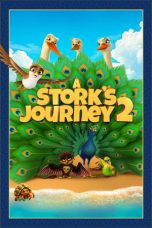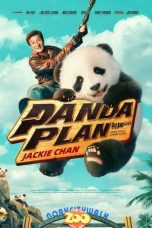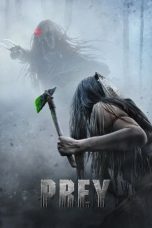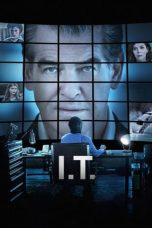- Source: Skill
A skill is the learned ability to act with determined results with good execution often within a given amount of time, energy, or both. Skills can often be divided into domain-general and domain-specific skills. Some examples of general skills are time management, teamwork and leadership, and self-motivation. In contrast, domain-specific skills would be used only for a certain job, e.g. operating a sand blaster. Skill usually requires certain environmental stimuli and situations to assess the level of skill being shown and used.
A skill may be called an art when it represents a body of knowledge or branch of learning, as in the art of medicine or the art of war. Although the arts are also skills, there are many skills that form an art but have no connection to the fine arts.
People need a broad range of skills to contribute to the modern economy. A joint ASTD and U.S. Department of Labor study showed that through technology, the workplace is changing, and identified 16 basic skills that employees must have to be able to change with it. Three broad categories of skills are suggested and these are technical, human, and conceptual. The first two can be substituted with hard and soft skills, respectively.
Hard skills
Hard skills, also called technical skills, are any skills relating to a specific task or situation. It involves both understanding and proficiency in such specific activity that involves methods, processes, procedures, or techniques. These skills are easily quantifiable unlike soft skills, which are related to one's personality. These are also skills that can be or have been tested and may entail some professional, technical, or academic qualification.
Holistic competency
Holistic competencies is an umbrella term for different types of generic skills (e.g., critical thinking, problem-solving skills, positive values, and attitudes (e.g., resilience, appreciation for others) which are essential for life-long learning and whole-person development.
Labor skills
Skilled workers have long had historical import (see division of labour) as electricians, masons, carpenters, blacksmiths, bakers, brewers, coopers, printers and other occupations that are economically productive. Skilled workers were often politically active through their craft guilds.
Life skills
An ability and capacity acquired through deliberate, systematic, and sustained effort to smoothly and adaptively carry out complex activities or job functions involving ideas (cognitive skills), things (technical skills), and/or people (interpersonal skills).
People skills
According to the Portland Business Journal, people skills are described as:
understanding ourselves and moderating our responses
talking effectively and empathizing accurately
building relationships of trust, respect and productive interactions.
A British definition is "the ability to communicate effectively with people in a friendly way, especially in business." The term is already listed in major US dictionaries.
The term people skills is used to include both psychological skills and social skills but is less inclusive than life skills.
Social skills
Social skills are any skills facilitating interaction and communication with others. Social rules and relations are created, communicated, and changed in verbal and nonverbal ways. The process of learning such skills is called socialization.: 5
Soft skills
Soft skills are a combination of interpersonal people skills, social skills, communication skills, character traits, attitudes, career attributes and emotional intelligence quotient (EQ) among others.
Development
Development of a very high level of skill is often desirable for economic, social, or personal reasons.
In his 2008 book Outliers, Malcolm Gladwell proposed the "10,000 hour rule", that world-class skill could be developed by practicing for 10,000 hours. This principle was disputed by other commentators, pointing out feedback is necessary for improvement, and that practice is no guarantee of success.
In his 2019 book Range: Why Generalists Triumph in a Specialized World, David Epstein argues that a period of sampling different activities (whether musical instruments, sports, or professions) can be helpful before choosing a specialization. Epstein argues that many tasks require a variety of skills which tend to be possessed by more well-rounded people, and finding a task which is a better fit to one's personality and interests can overcome the advantage otherwise provided by having more practice earlier in life and attempting peak performance as a younger person. Someone who has demonstrated a high level of knowledge or skill in multiple disciplines is known as a polymath, or in musical performance, a multi-instrumentalist.
A long-standing question is to what extent skills can be learned versus the degree that innate talent is required for high-caliber performance. Epstein finds evidence for both sides with respect to high-performance sport in his 2013 book The Sports Gene. For thinking tasks, the heritability of IQ has been extensively studied to try to answer this question, though does not necessarily map directly onto skill level for any given thinking task.
See also
Communication skills
Competence (human resources)
Deskilling
DISCO - European Dictionary of Skills and Competences
Dreyfus model of skill acquisition
Forecast skill
Game of skill
Online skill-based game
Object skill
Procedural knowledge
Transferable skills analysis
References
External links
American Society for Training & Development (archived 29 October 1996)
Australian National Training Authority (archived 11 June 2009)
NCVER's Review of generic skills for the new economy (PDF)
SKILLS EU Research Integrated Project
Kata Kunci Pencarian:
- Tondemo Skill de Isekai Hōrō Meshi
- Tensei Kizoku, Kantei Skill de Nariagaru
- Keterampilan teknis
- Keterampilan nonteknis
- Level 1 dakedo Unique Skill de Saikyō desu
- Keterampilan berpikir tingkat tinggi
- Dai (pendakwah)
- Polisi Khusus Pemasyarakatan
- Melki Bajaj
- Daftar acara NET.
- Skill
- Cadence SKILL
- Game of skill
- The Skill
- Cognitive skill
- Skill position
- Motor skill
- G.Skill
- Skillion
- Communication skill
- 1
- 2
The Bourne Identity (2002)
I.T. (2016)
No More Posts Available.
No more pages to load.














